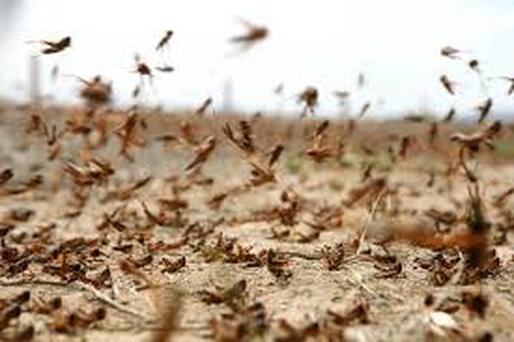The Ten Plagues of Egypt6/29/2019 The stage was set for one of the most epic dramas to unfold in human history. All the players were in place. From Pharaoh who stubbornly sat on his royal throne in Egypt greedily unwilling to let free labor go without a fight, to the people of Israel who were broken-hearted and hardened by years of tough and painful slavery. While things looked bad and all hope seemed lost, it was merely a setup for some of the most dramatic accounts in Scripture—the Ten Plagues of Egypt. Let’s rephrase that so we don’t miss this very important point. When things looked the bleakest, when the Israelites were ready to give up, and when evil seemed to triumph, that was when God acted in mighty ways. Everything leading up to this moment was merely a setup so that God’s glory might be more greatly revealed. God doesn’t do things in half measure. And this epic event in history was intended to be awesome and miraculous so there would be no doubt in the hearts and minds of generations that it was God’s hand that did these things—not man.
Therefore, let’s remember this when we’re feeling down and hopeless about situations in our world. God is sovereign and He’s in control. He knows what’s going on and already knows how and what He’ll do in each and every situation. He’s not surprised by the evil decisions of man or caught off guard by the sudden tragedies that seem to be taking place on a daily basis. God sees and knows it all and is working. We may not see it—like the Israelites didn’t see what God was doing on their behalf until it happened—but we must believe His Word and remember His promises, because God will not fail us nor forget His people. Now back to Exodus and the plagues of Egypt. There were ten plagues, or ten miraculous bad things that befell Egypt. And if you grew up in church, the Ten Plagues may see like the stuff of storybooks. But they were real, big, and scary. Some of them were annoying and made life miserable, while others may seem comical upon first glance. However, with deeper study, we see that all ten plagues have deep significance and are nothing to gloss over as a mere children’s Sunday school story. But because our study through Exodus is meant to be focused on Moses, I will not spend much time on the plagues of Egypt. We will do a brief run down here and study a few more things about them over the next couple of weeks. But if you have time, please take a closer look at the multiple layers of meaning behind each of the ten plagues, and why God chose to burden Egypt with these specific things. The very first thing to note is that the plagues were not just acts of power from God; they were also acts of judgment against the idolatry and false gods of Egypt. The first two plagues—water to blood and frogs—were two idols of Egyptian worship and God turned those gods into plagues. The Nile was revered and worshipped. It was the source of life for Egypt and the main mode of transportation throughout the country. So the plague of all the water of the Nile turning to blood and being unusable was a harsh blow. It rendered the power of the river obsolete, and therefore, the authority of the gods of the Nile powerless. And it went on for seven days! You would think that after two days, Pharaoh would realize the hand of God. But no, his heart was still hardened against the God of Israel. Frogs were also highly revered and worshipped in ancient Egypt. In a religion of many animal gods, the frog was towards the top, and therefore, all frogs were special and not to be killed or injured. So imagine life with frogs all around you—in your house, under your couch, in bed with you, and so numerous that you couldn’t walk or sit anywhere without frogs. But yet you can’t kill them or squish them because they are one of your deities! What a conundrum! So God turned the gods of Egypt into plagues, and when that did not soften Pharaoh’s heart, He sent more destructive plagues upon Egypt. Gnats, flies, death of livestock, boils, hail, locusts, and darkness. We know the story, but remember all these things came in epic proportions. The boils were not just a little sore on your back; it was a blistering, gross mess. And the hail—it was the largest hail that had descended on Egypt. It was massive, destructive, and killed livestock, trees, plants, and just about everything in its path. All the plagues were bad and epic in size and scope. God was making a statement in a big way, a way that would be remembered for generations. So I guess two main takeaways from the plagues of Egypt is this: 1) be careful who your gods are, they might become your worst nightmare, and 2) never forget or underestimate the power and authority of God. If He can make darkness cover the earth and massive hail descend in places that never receive it, then He can do anything. His power knows no bounds and His authority is supreme. Therefore, let’s honor and respect Him, giving God the glory and reverence due Him.
0 Comments
Your comment will be posted after it is approved.
Leave a Reply. |
Kristin RenferView the About page for more info on the author. Receive Posts via EmailArchives
August 2020
Categories
All
�
|


 RSS Feed
RSS Feed